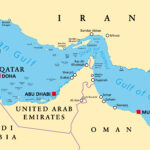Loss control personnel are not often thought of fondly in customers’ minds, according to Steve Anderson, portfolio executive, risk engineering for the Zurich Program Business Unit of Zurich North America. “We deserve this reputation that many of us have had over the years that the loss control person is nothing more than an inspector who comes to find out what a company is doing wrong, makes an impossible list of recommendations, then tattles back to underwriters and rates go up. I don’t think that’s off the mark in some cases, especially in a hard market where there’s no capacity and carriers look to recover their losses,” he said.
So Anderson challenged his audience at the recent Target Markets Program Administrators Association Annual Summit to change that perception.
“There’s nothing wrong with taking a good hard look hereafter at how to use loss control,” he said. Loss control can be used as a tool to educate customers, for example. And loss control specialists can help throughout a program’s evolution, Anderson advised.
“One of the solutions we can contribute is to not just service policyholders, but to service the entire industry that they are a part of,” Anderson said.
For example, he said by working with program administrators on its ambulance program, Zurich realized that private ambulance personnel were trained in helping patients, but received no training on how to drive without getting into a crash, how to keep from getting injured and how to operate their vehicles safely. So, to aid the industry, Zurich partnered with its program administrator to develop an accredited online safety program for emergency medical service personnel. The program is branded with both the PA’s and carrier’s name, hosted in conjunction with an accredited university, helps to improve safety and provides paramedics with a few required continuing education credits.
Key Role
Loss control personnel, or risk engineers, play a role in every step of a program’s lifecycle, Anderson noted. Oftentimes, underwriters may not understand program business and may try to evaluate a program’s risks like it would for the risks in a standard market. But “program business is going to have hair on it or it wouldn’t be a program,” he said. Thus, loss control specialists can help underwriters understand a market to select what risks to write and develop new program opportunities.
When a new program idea comes through a carrier’s door, whether it’s a new opportunity with an existing managing general agent or a new program with a new MGA, risk engineering can contribute to the evaluation process, Anderson said. Once a carrier decides to pursue the program, the company must create underwriting guidelines. Loss control can help in participating in the risk selection.
Once the underwriting guidelines are set, the MGA should be trusted to write the business. However, “there are times when an application is too big, too weird, and the carrier has choices,” Anderson said. This is a crucial point at which loss control personnel should look at the business, he suggested.
Companies should turn to the risk engineer to find a way that this business is attractive. “Our job is to help you put successful business on the books. We can help in risk selection,” he said. “If we can show the risk, even though it’s big or weird or has unusual characteristics … if we can show it’s best in class or exceeds the industry in some way, we can give (the carrier) confidence to put the business on the books.”
Emerging Risks
Another way loss control personnel can help agents and carriers is to help them deal with emerging risks, Anderson added. Tanning salons, for example, continue to expand their array of services. Some salons have spray-on tans or offer cosmetic services such as photolight therapy, dermabrasion and pulse light therapy.
“The problem is that as you study emerging technologies, there may be risks that the program doesn’t contemplate or price for,” Anderson said. “Some medical devices that are regulated by the FDA (Food and Drug Administration) are coming in from Europe (and winding up in tanning salons) with no oversight.” Both the carrier and MGA should be aware of such risks. “With any class of business, we have to be aware of trends to look out for program opportunities and new risks,” he explained.
Finally, loss control specialists can serve as a marketing tool, Anderson said. “Everything (risk engineers) do is touching a customer, branding and marketing,” he said. “Loss control is an extension of the carrier. We’re in a commoditized industry. But great service can swing a couple of points on price.”
The ability to reach out to policyholders is very affordable with e-tools, he noted. For example, Zurich provides customers with a toll-free safety hotline, where, for instance, a tow truck operator could speak with a risk engineer if he or she had a question on how to improve safety in the operation. The person can talk to the risk engineer for free and there’s no report that goes back to the carrier that could affect the operator’s rates, he explained.
“Program business succeeds with great relationships,” Anderson said. Thus, loss control can contribute to a program’s design and is a partner with the carrier, program administrator and third-party services — part of the team — that can help to ensure a program is profitable, he concluded.
Anderson was a speaker on a panel titled “Differentiating your program through risk management/loss prevention,” held at the TMPAA Annual Summit in Tempe, Ariz., in October.
Was this article valuable?
Here are more articles you may enjoy.


 Georgia Insurance Law Is About to Get an Upgrade With Multiple Changes
Georgia Insurance Law Is About to Get an Upgrade With Multiple Changes  Marine Insurers Cancel War Risk Cover as Iran Conflict Escalates
Marine Insurers Cancel War Risk Cover as Iran Conflict Escalates  ‘Meaningful Decline’ in Industry Q1 Underwriting Profit Expected From Winter Storms
‘Meaningful Decline’ in Industry Q1 Underwriting Profit Expected From Winter Storms  Hackers Used AI to Breach 600 Firewalls in Weeks, Amazon Says
Hackers Used AI to Breach 600 Firewalls in Weeks, Amazon Says 


